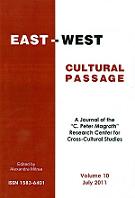The Limits of Empathetic Imagination in Ian McEwan’s Saturday
The Limits of Empathetic Imagination in Ian McEwan’s Saturday
Author(s): Monica CojocaruSubject(s): Literary Texts
Published by: Editura Universitatii LUCIAN BLAGA din Sibiu
Keywords: Ian McEwan; Saturday; imagination; empathetic engagement; ethical value; violence; trauma; science
Summary/Abstract: Ian McEwan’s novel Saturday foregrounds an essentially humanist, empathy-centred morality, illustrating how stories can influence our ethos by involving our imaginative understanding of other people. Although this empathetic involvement is one of the novel’s main concerns, it is not presented as a given, but as an act that gives way to guilt, uneasiness, ambiguity, and moral dilemmas. The lack of empathetic imagination leads to misunderstandings and traumatic events, and, conversely, the ability to imagine oneself as another eventually proves a precious tool, charged with redemptive value, empowering a new vision of life. By drawing attention to the power and function of storytelling, McEwan points to the different ways of interpreting the world, and shows that we are confronted with a welter of contradictory yet not mutually exclusive truths, with a plurality of competing narratives, all reflecting coherent worldviews, none of which acquiring a superior position.
Journal: East-West Cultural Passage
- Issue Year: 11/2011
- Issue No: 1
- Page Range: 45-58
- Page Count: 14
- Language: English
- Content File-PDF

